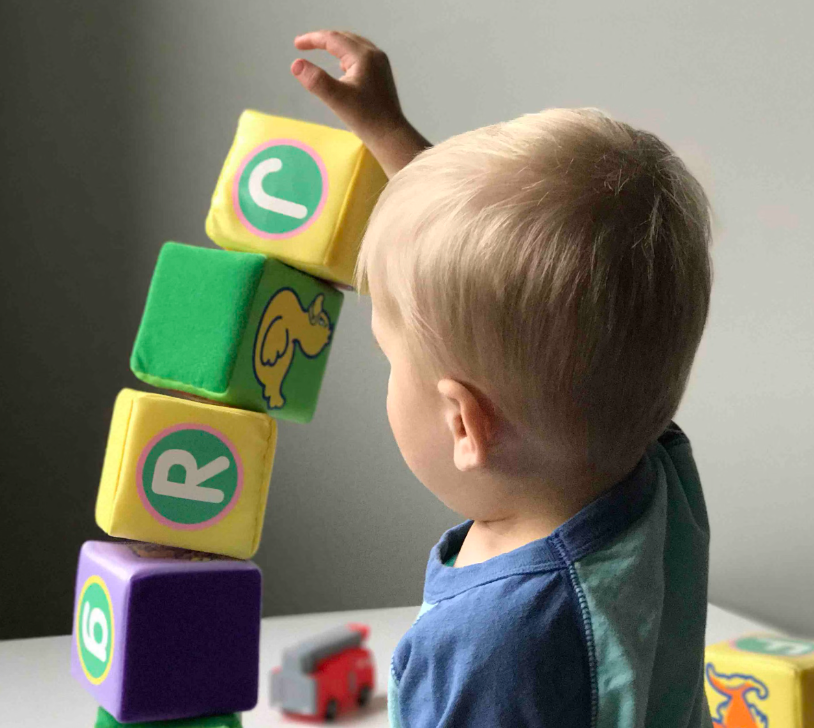Infants During COVID-19 Pandemic Faced Delays in Socio-Emotional Development
Infants and toddlers during the COVID-19 pandemic are associated with a higher odd of positive ASQ:SE-2 screenings. The findings suggest the pandemic caused delays in children’s socio-emotional development.
Credit: Unsplash

Infants and toddlers during the COVID-19 pandemic are associated with a higher odd of positive Stages Questionnaire Social-Emotional, Second Edition (ASQ:SE-2) screenings, suggesting the pandemic caused delays in children’s socio-emotional development.1
Early childhood years—from birth to 3 years old—marks a critical time for children to learn about the world around them and build their cognitive, academic, and social skills.2 Yet, during the COVID-19 pandemic when daycare and preschools closed, children’s early development took a hit.1
With daycare and preschools closed—as well as social distancing at places like the playground—children had less interaction with their peers, making it difficult to build social skills. Meanwhile, with the quarantine, screen time increased. Children’s screen time is linked to poorer language, problem-solving, and social development.
A parent’s high stress level during the pandemic—or the onset of mental health conditions like anxiety and depression—can also affect an infant’s development. Moreover, children during the lockdown had less pediatric care visits, and as a result, received less immunizations.
Previous studies explored the neurodevelopment differences in infants during the pandemic and prior to the pandemic. They found that infants born during the pandemic scored significantly lower in motor and personal-social skills on the 6-month Ages and Stages Questionnaire, Third Addition (ASQ-3).
Also, another study found increased delays in fine motor and communication skills at 12 months using the Gesell Developmental Schedule. Except, this study observed no significant changes in the 6-month ASQ-3 scores.
Although studies explored children’s lack of socio-emotional development during the pandemic, there had yet to be studies specifically designed to examine socio-emotional development, changes in screening results over time, or referrals to early intervention. Thus, a new study, led by Larisa M. Kuehn, RN, IBCLC, of the University of Colorado, aimed at evaluating changes in socio-emotional development of children, measured by the ASQ-3 and Ages and Stages Questionnaire: Social-Emotional, Second Edition (ASQ: SE-2).
“Based on clinical observations, we hypothesized exposure to the COVID-19 pandemic had negative impacts on child socioemotional development among families served by a home-visiting program,” the investigators wrote. “In a large sample of [Nurse-Family Partnership] participants, we found higher rates of positive ASQ:SE-2 12- and 18-month screenings indicating a need for referral in children exposed to the pandemic compared with prepandemic.”
The study compared rates of positive ASQ-3 and ASQ:SE-2 assessments—which indicate a need for a referral—in cohorts of children who experienced the pandemic at 0 – 2 years old versus a pre-pandemic cohort. The investigators pulled data from the Nurse-Family Partnership, a program for people during their pregnancies through when their child is 2 years old. Eligibility criteria for the study included a birth between January 2015 – December 2021, a completion of a either an ASQ-3 or ASQ:SE-2 screening, a singleton birth, and ≥ 37 weeks of gestation, leaving the investigators with a sample of 60,171.
The study included 4 cohorts—pre-pandemic, pandemic 1, pandemic 2, pandemic 3. Pre-pandemic included children who turned 2 years old and was in the Nurse-Family Partnership program before the pandemic.
The pandemic 1 cohort had children who were 1 years old when the pandemic began—for this cohort, their 10- and 12-month ASQs were unaffected by the pandemic, but their 18-month ASQ-3 scores could be affected. The pandemic 2 cohort had children who were infants at the start of the pandemic, so their 10-, 12-, and 18-month ASQs were likely all affected. Then, the pandemic 3 cohort were born after the pandemic began and thus the pandemic affected all ASQ scores.
The ASQ-3 evaluated 5 domains: communication, gross motor, fine motor, problem-solving, and personal-social. Domains are scored as low risk (low score), monitor, and refer (high score). The ASQ-3 had been designed specifically to measure socio-emotional development and screen children in self-regulation, compliance, social communication, adaptive functioning, autonomy, affect, and interaction.
For the 12-month ASQ:SE-2, the investigators observed significantly increased odds of positive screening in all 3 pandemic cohorts than the pre-pandemic cohort (pandemic 1: odds ratio [OR], 1.35; 95% CI, 1.09 – 1.66; pandemic 2: OR, 1.60; 95% CI, 1.30 – 1.96); pandemic 3: OR, 1.94; 95% CI, 1.61 – 2.33).
Moreover, the 18-month ASQ:SE-2 demonstrated significantly increased odds of positive screening in pandemic 2 and pandemic 3 compared with the pre-pandemic cohort. (OR, 1.61; 95% CI, 1.29 – 2.00; pandemic 3: OR, 1.87; 95% CI, 1.50 – 2.32). Specifically, the communication domain had a significant increase in the odds of positive screening in cohorts pandemic 2 and 3.
“Delays in socio-emotional development appear to be persistent for cohorts exposed to the pandemic during the first 2 years of life, indicating these cohorts may continue to require additional support from EI and education systems,” the investigators.
Because of this, the investigators wrote how there should be more resources and educations systems available to provide support.
“Additionally, these data show we must be aware of how child development can be shaped during a global health emergency and the need to invest in preventing, addressing, and mitigating impacts of the pandemic on child development,” the investigators concluded.
References
- Kuehn, L, Jones, A, Helmkamp, L, et al. Socioemotional Development of Infants and Toddlers During the COVID-19 Pandemic. JAMA Pediatr. 2023. Published 2023 Dec. 26. doi:10.1001/jamapediatrics.2023.5684
- What Is Early Childhood Development? A Guide to the Science (ECD 1.0). Center on the Developing Child Harvard University. https://developingchild.harvard.edu/guide/what-is-early-childhood-development-a-guide-to-the-science/. Accessed December 22, 2023.